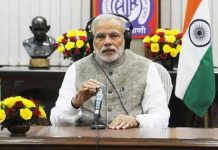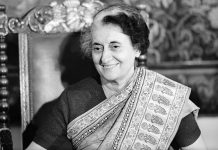
Blame the fatuous analogy on the fatuousness of the IPL, but Ek Thi Daayan reminded me of the hapless Delhi Daredevils — who would go on to ruin the analogy by actually winning a match — for the immense pedigree of its cast and crew and the perplexing nature of its collapse after a promising beginning. Though never really scary except for a couple of moments, the first half of the Vishal Bhardwaj story is intriguing enough, and could have possibly been expanded into a better film than Ek Thi Daayan ultimately was. The second half, on the other hand, is genuinely scary in how bad it can get when one of the most accomplished storytellers in Bollywood goes off the rails.
I suppose part of the spleen stems from the presence of Emraan Hashmi in the film, even though he turns in a better performance than usual. It’s still telling that the best part of the film is the one he’s not in, a hypnosis-induced flashback where the young him is played by the excellent Vishesh Tiwari, who makes a great case for making children the protagonists of all future Bollywood horror films. He is helped by a menacing performance by Konkona Sen Sharma, and it is only in scenes involving the two that the film’s unintended comedy is replaced to some extent with horror.
Bhardwaj’s fondness for Shakespeare is well documented, but naming his fully-grown protagonist Bobo goes above and beyond what the Bard meant when he asked what’s in a name. Hashmi’s character is a famous magician called Bobo the Baffler — it should have been Bobo the Baffling, or more accurately, Bobo the Baffled — who is tormented by the memory of the witch he narrowly escaped as a child, and who has promised vengeance. Witches, it seems, recharge their powers by sacrificing a child during a lunar eclipse on 29 February, which she did by killing Bobo’s sister and now wants to do by killing his adopted son (one allows for suspension of disbelief, but back-of-the-envelope calculations suggest that such an astronomical phenomenon happens only every 584 years; the last time it happened, in 1504, Christopher Columbus used it to confound the native Americans). And the only way to kill a witch is by cutting her braid, which leads to many cringe-inducing efforts by Hashmi to do so. Those efforts, ultimately, sum up this well-intentioned mess of a film, which takes an adolescent premise and tries to pass it off as gripping drama.

The problem with Lessons in Forgetting, the National Award-winning film that had a limited release this week, on the other hand, is that it takes a mature premise, which could have made for gripping drama, and turns it into a fairly adolescent public service announcement. Not that it makes for a terrible film; Unni Vijayan’s adaptation of Anita Nair’s eponymous novel is an exercise in confronting India’s social ills with realism, with no hero on a white horse rushing in to save the day.
Adil Hussain plays JA Krishnamurthy, or Jak, who has to deal with questions of his daughter’s alleged promiscuity as he investigates her tragic accident in the fictional coastal village of Minjikapuram. As he puts together the accounts of her various boyfriends, the truth gradually emerges and he has to accept a different, more brutal truth that echoes similar stories across the country. And therein lies the film’s triumph; while the characters are too Manichean, good does not prevail and the only thing Jak can hope for is not justice, but closure. Filled with several believable and understated performances, Lessons in Forgetting is worth a dash to the cinema before it is replaced with familiar tripe.













